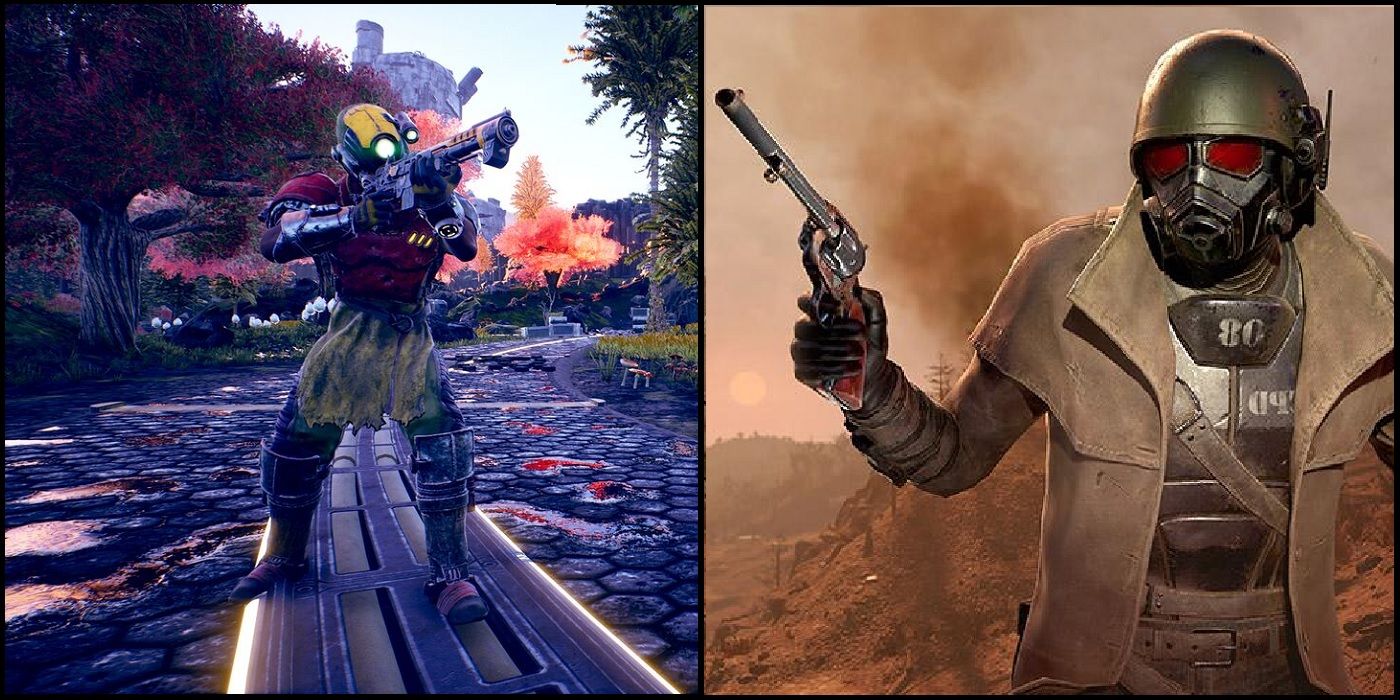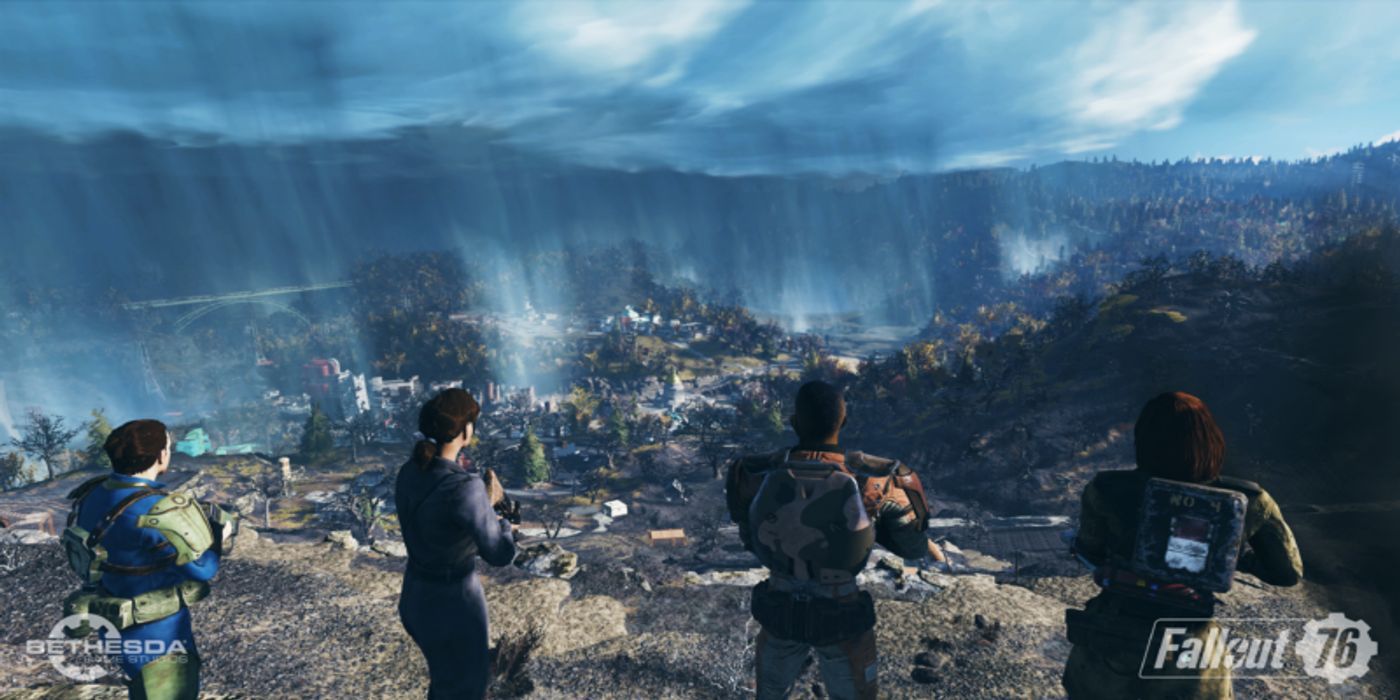Fallout 76 has found itself at the center of controversy again, and while new information about the game often runs the gambit from welcome news for players to decisions that cause community uproar, the recent Fallout 1st announcement by Bethesda has quickly proved to be the later rather than the former. So, while the current outrage is at its hottest, this seems like a good time to look at Fallout 76's most notable competition, The Outer Worlds.
For those that don't know, The Outer Worlds is an open-world game in a similar sandbox style to the Fallout series, developed by Obsidian Entertainment. This studio was formed by some of the developers for the original Fallout that also made Fallout: New Vegas, the title with the highest user rating of the series' FPS generation on Metacritic. This has led a lot of fans to make the one-to-one comparison between The Outer Worlds and Bethesda's most recent Fallout games, including 4 and 76.
It should be explained up front that the comparisons between The Outer Worlds and Fallout 76 are mostly superficial and blurs all of the details that separates the two games. Some of the biggest differences that divides the two games include the aesthetic design, conflicting Fallout's more realistic art style with The Outer Worlds' somewhat cartoonish appearance more resembling Bioshock, as well as the general size and scope, where Obsidian has described its game as smaller than other sandboxes in the genre.
Similarly, the settings sets both games apart as well, with Fallout taking place in a post apocalyptic Earth and The Outer Worlds sending players to explore distant planets, but that's less important and can fall under the aesthetic design category, since the space setting feeds into the design choices and fuels a lot of what makes the games look different.
As for what has garnered Fallout 76 so much attention recently, it has to do with the new Fallout 1st Membership that recently launched as the game's way of providing Private Worlds and an Unlimited Stash Box, two features that players have been clamoring for since the game released in 2018. The major problem players have with this new membership is that it dropped with a $13 monthly price tag, or $100 for a year, for a feature that Bethesda had not previously alluded would be set up behind a paywall. On top of the new payment requirements, it appears that players are running into bugs with both of Fallout 1st's main draws in the first place, leaving Fallout 76 in rough condition as fans either boycott from the recent outrage or simply leave after finding that the membership perks aren't working properly.
With all of this turmoil surrounding Fallout 76, it's little wonder that players may be looking to fulfill their appetite for the genre by turning to The Outer Worlds. Considering that The Outer Worlds has received some impressive reviews, it would seem that Obsidian's latest title will impress fans, with some even claiming it to be what Fallout 76 should have always been. This situation does arouse suspicion about how Bethesda's latest controversy could affect the launch of the largest competitor within the genre in over a year.
Fans from Reddit to Twitter immediately started conflating the Fallout 1st announcement with the company's supposed fear of competition encroaching in. Some users have taken stances, sometimes serious and sometimes comical, about how this announcement is bound to get players to turn tail from Fallout 76 and instead place their faith, and more importantly their money, into The Outer Worlds. Others have gone into full on conspiracy theory mode, accusing Bethesda of artificially creating this controversy in order to dominate the news cycle during their competitor's release window, distracting customers from buying during the opening weekend and hindering the initial launch of the game.
Even long time defenders of Fallout 76 are having a hard time backing this decision, simply because of how highly requested some of the features included in the membership were. The point is that this decision alone has made it much harder for longtime fans to stand behind the game, even though there still is a thriving community behind the game who are still excited for upcoming updates, like Wastelanders that plans on bringing NPCs to the game, and the Halloween event that begins on the 29th. This may have been nothing more than a strategy to maximize on those remaining players in order to keep the lights on long enough to pump out those free updates for all players.
In short, while Fallout 76 has been riddled with complications and controversies, with complaints of glitches and accusations of the entire title being messy, it's important to remember that this is a company behind Fallout 4 and Skyrim, some of the biggest open-world games in recent history. The online nature of Fallout 76 comes with the expectation that it should be the company's main focus for years after release, and while there was still plenty of work to be accomplished after launch for Fallout 76, Bethesda has more projects in development, including an upcoming Elder Scrolls 6.
So, The Outer Worlds might be completely off Bethesda's radar, while it instead focuses on keeping the development team for 76 funded until Wastelanders launches well after the hype for Obsidian's new game has died down and players are already hungry for more open-world action.
Fallout 76 and The Outer Worlds are available now for PC, PS4, and Xbox One.


